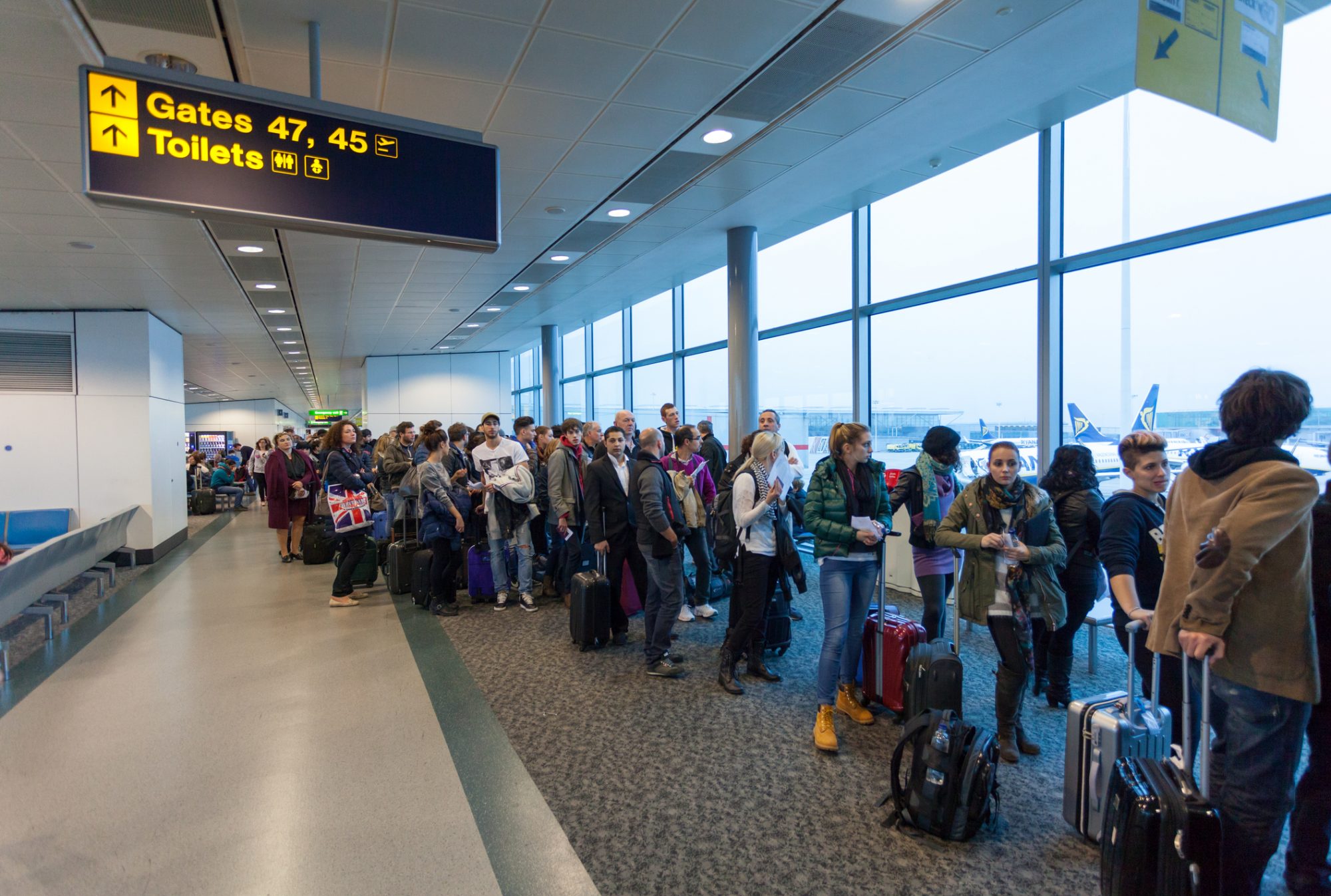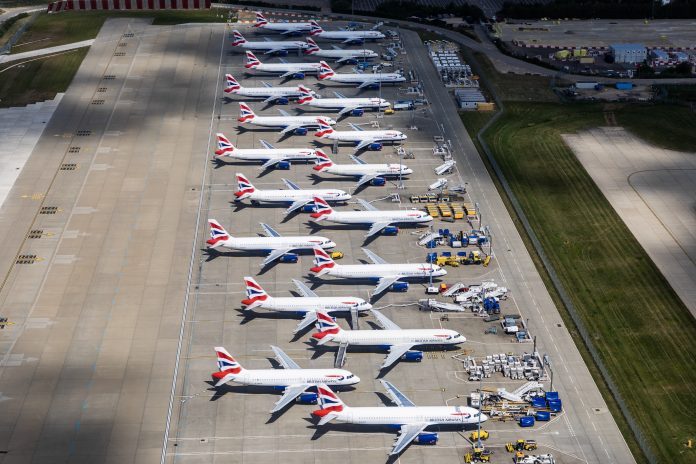An issue with the UK’s air traffic control system left hundreds of flights grounded and passengers stranded on bank holiday Monday (August 28), but what are the greater implications for the aviation industry?
Thousands of passengers were stranded at airports after a ‘network-wide failure of UK air traffic control systems’ – including some who were sat on their planes which were unable to take off. There have also been complaints from passengers trying to get into the UK that their flight was delayed due to technical failure.
Network-wide failure of UK air traffic control systems
A catastrophic disaster for the aviation industry
Here Professor Kirk Chang from the Department of Innovation and Management, Royal Docks School of Business and Law explores the implications.
“The last time there was something this significant was about a decade ago” Mr Harper, Transport Secretary, told BBC Radio 4’s Today programme on Tuesday morning (29 August). Having said this, however, my observation is: Pretty bad.
It is a catastrophic disaster for the aviation industry and related business in the same sector. In theory, we should not blame airlines for what happened yesterday if we are not directly linked to the disaster.
However, if I was one of the passengers and spent thousands in holidays and/or business travelling and now got stuck in an airport, that would be a very different story.
For instance, passengers may start to think:
- Should I travel by airplanes or other alternatives in the future?
- Should I consider other traffic methods if it is possible to do so? EuroTunnel? Cars/Ferries?
- Aviation insurance may significantly raise the insurance premium, affecting everyone in the chain.

The importance of communication
Having said this, there is something good from the disaster yesterday.
The positive point is that managers in the aviation industry have started to realise the importance of communication between technicians and non-technicians (to be fair, the union keeps saying it, but the management ignores it usually).
The UK’s National Air Traffic Services (NATS) has now “identified and remedied” the technical issue affecting its flight planning system and air traffic control. In a statement, they said: “We are now working closely with airlines and airports to manage the flights affected as efficiently as possible.”
Data from aviation analytics firm Cirium as of 2:30 p.m. revealed that hundreds of flights had been cancelled on August 28th, With Figures showing that:
- 232 flights departing UK airports were cancelled – equivalent to 8% of all departures
- 271 flights arriving at UK airports were cancelled – equivalent to 9% of all arrivals
Based on the comments from the aviation experts, the ‘disaster’ was most probably caused by a series of ‘technical glitches’, such as slow data inputs (local units), delayed data compilation (regional units), prolonged integrated analysis (central units) and poor decision-making (top units).
A management issue?
Of course, the exact cause of the technical incident will be subject to investigation by the Civil Aviation Authority. Simply put, it is a management issue.
Who talks to the machine? Who monitors who talks to the machine? And, finally, who manages those two people? A classical management theme problem.
Technical glitches do happen from time to time, with varying degrees of magnitude, however, the ethos of “good enough” is still prevalent in the aviation industry. As long as the glitch is not salient and the tech still works, people usually ignore it.
Moreover, managers are not necessarily technicians themselves, so they may not be fully aware of technical glitches and/or their implications. If the glitch is not reported (or technicians do not wish to report it for whatever reasons, ranging from non-significance and existing issues to threats to their career opportunities).
Crisis management: Tackling changes within air traffic control
Both 5C and Four-C are models of crisis management.
5C comprises five rescue-oriented actions, whereas Four-C describes four coping strategies.
The success of both models requires advanced planning and dry runs (rehearsals), therefore not applicable to something already occurred. The design and implementation of these models are linked to the investment in personnel and resources, sometimes external support too (e.g., experts in crisis management).
Compared to the 5C and Four-C models, the 3R model (regret, recompense & reform) will probably work the best. My proposition is: the REPs from the companies shall consider the following actions immediately after the severe disruption on Monday.
These are:
- Firstly, sincerely apologise to those affected, their families and the community
- (Regret)
- Secondly, explicitly state that a replacement, coupon or other object of comparable tangible value will be provided to replace the affected trips/accommodation. A line/website should be set up to ease the situation as well
- (Recompense)
- Finally, take responsibility and appoint a team to investigate the circumstances and recommend steps. Ensure the business and services will resume soon
- (Regain customers’ confidence and reform)
Indeed NATA responded in a statement: “Our engineers will be carefully monitoring the system’s performance as we return to normal operations. Our priority is always to ensure that every flight in the UK remains safe, and we are sincerely sorry for the disruption this is causing,”
Our priority is always to ensure that every flight in the UK remains safe
The attitude change from the management board is meaningful.
My proposition is this: The more two sides talk to each other, the less chance for technical glitches.
Through the best communication between the two sides, the outcome shall benefit all interested parties in the aviation industry and relevant services.
This opinion piece was written and provided by Kirk Chang, a Professor in the Department of Innovation and Management, Royal Docks School of Business and Law, University of East London, with a background in Technovation and People management: https://uel.ac.uk/about-uel/staff/kirk-chang











